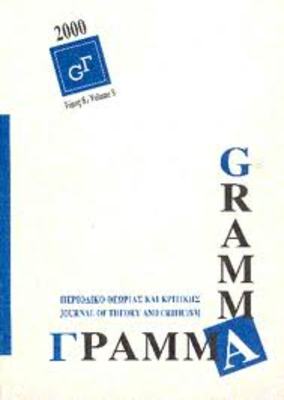American grief : the AIDS quilt and texts of witness
Part of : Γράμμα : περιοδικό θεωρίας και κριτικής ; Vol.16, No.1, 2008, pages 251-272
Issue:
Pages:
251-272
Section Title:
Illness, death, and catastrophe
Author:
Abstract:
Along with fiction written from the perspective of heterosexual men caring for dying gay male friends and mothers caring for a child, this essay looks at the NAMES Project AIDS Memorial Quilt as the best known and originary AIDS text of witness, especially in the United States. The Quilt reflects the development of the concern with AIDS from being primarily that of gay men, drug users, and their companions, to a concern that belongs also to a more mainstream audience. Changing perceptions of and attitudes towards the Quilt are reflected in the fiction under analysis here. "American Grief" thus traces the development of the reading audience for fiction and other narratives about AIDS from being a primarily gay audience to a mainstream one. In this respect, it also examines the literary strategies evident in The Way We Write Noie (1995), one of the first anthologies of AIDS literature. The discussion considers how AIDS literature intended for a mainstream reading public is often cast as pedagogical, thus assuming that it has something to teach its readers, rather than containing something with which they can identify. In texts by Louis Begley and Dennis McFarland this is apparent in relationships based on watching, rather than on intervention or participation or identification. Finally, the essay considers AIDS fiction by Alice Elliott Dark and Alice Hoffman that focuses on families in which one member is ill with AIDS, in terms of Jessica Benjamin's concept of intersubjectivity.
Subject:
Subject (LC):
Notes:
Revisiting crisis / reflecting on conflict: American literary interpretations from World War II to Ground Zero., Περιέχει βιβλιογραφία




